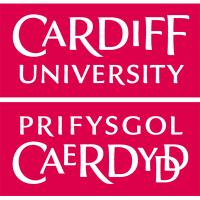Advanced Building Performance Evaluation (MSc)
Our MSc in Advanced Building Performance Evaluation aims to give students a solid foundation in the evaluation of the operational performance of buildings for energy and environmental aspects.
The programme focuses on the investigation of energy and environmental performance in existing buildings, integrating technical and occupants’ data. The programme equips professionals with the interdisciplinary skills needed to promote the efficient and effective operation of existing buildings. It will prepare you for a future career across a range of roles in facilities and building management, consultancy, energy and environmental performance assessment and research.
Most existing programmes in this subject area focus on the design of new buildings. However, the efficient operation of existing buildings is becoming more important. There is a need to improve the quality of environments and, at the same time, to reduce the energy that they consume and their carbon dioxide emissions. You will learn from interdisciplinary approaches, as the programme draws on bodies of theories from building science, social sciences and humanities.
On successful completion of the programme, you should be able to conduct sound evidence-based environmental and energy performance assessments of buildings in operation. You should also be able to analyse and integrate technical and social aspects of performance using methods of energy and environmental monitoring and human studies.
Our structured curriculum will enable you to develop essential knowledge and practical skills in building evaluation. We will support you to become an independent learner, able to undertake and understand the industry and policy challenges and to respond to them effectively. The Welsh School of Architecture at Cardiff University is a friendly, supportive and culturally diverse environment in which to study.
Intakes
- Sep
Application Processing Time in Days: 30
Minimum English Language Requirements
| English Level Description | IELTS (1.0 -9.0) | TOEFL IBT (0-120) | TOEFL CBT (0-300) | PTE (10-90) | |
|---|---|---|---|---|---|
| Expert | 9 | 120 | 297-300 | 86-90 | |
| Very Good | 8.5 | 115-119 | 280-293 | 83-86 | |
| Very Good | 8 | 110-114 | 270-280 | 79-83 | |
| Good | 7.5 | 102-109 | 253-267 | 73-79 | |
| Good | 7 | 94-101 | 240-253 | 65-73 | |
| Competent | 6.5 | 79-93 | 213-233 | 58-65 | |
| Competent | 6 | 60-78 | 170-210 | 50-58 | |
| Modest | 5.5 | 46-59 | 133-210 | 43-50 | |
| Modest | 5 | 35-45 | 107-133 | 36-43 | |
| Limited | 4 | 32-34 | 97-103 | 30-36 | |
| Extremely Limited | < 4 | < 31 | < 93 | < 30 |
Job Opportunity Potential
Our courses prepare you for a professional career in a wide range of industries, business and the financial sector, or further study.
Engineers are in high demand, and thanks to our wide range of degree programmes, our graduates’ prospects are among the best in the UK.
On average,
over 95%
of our graduates are
in employment or further study
six months after graduating.
Our graduates go on to work in a range of areas, including industry, the public sector, the financial sector or academia. Some graduate destinations include:
Supplementing your studies
We offer students the option of taking a Year in Industry after their second year of study, which is spent in a professional workplace gaining hands-on experience. This experience can simultaneously improve students’ confidence and employment prospects.
Our MEng (Hons) programmes also have the option of a Year in Europe, which is a year spent at an institution in France, Germany or Spain, after the third year of study. This is a chance not only for students to broaden their personal horizons, but also to develop further academic skills.
Links with industry
Students who are not on the Year in Industry scheme still benefit from industrial input in modules across all engineering disciplines. School-wide project modules are supported by industrial collaboration with a number of companies, including Flintec, Ove Arup and Partners International, Atkins, GL Garrard Hassan, BAE Systems, EADS, and Babcock Marine.
In the waste management, recycling, and energy fields there is significant input from research contracts with companies such as Rolls Royce, EoN, Tata Steel, and Stork Technical Services. Inputs are also received from companies such as Tidal Energy Ltd (TEL), Marine Current Turbines (part of Siemens), Bosch, ANSYS and Mabey Bridge.
In environmental and water engineering, presentations are given by industrially sponsored lecturers from CH2MHILL and Lusas. Direct industrial input also comes from companies including Newport Galvanisers (a subsidiary of Wedge Galvanisers), GBCard and Partners, Jacobs Engineering, Capita Symonds, and Mott-MacDonald.
Extra-curricular opportunities
In today's competitive graduate job market, we recognise that students are always looking for ways to make them stand out to prospective employers. Each year, our students have the opportunity to get involved with some really exciting projects.
Aside from this, there are many extra-curricular opportunities, both social and serious, organised through the School, the University or the Students’ Union.
PSW Opportunity
- 2 Years PSW
Admission Requirement / Eligibility Criteria
Postgraduate taught courses
You will need successful completion of a relevant bachelor's degree from a recognised institution, with grades of approximately 55%-60% to qualify for our postgraduate courses.
Postgraduate research courses
If you are applying for research courses from India, you will be required to provide evidence that you have already carried out research, usually via the successful completion of a relevant master's degree.
You will need successful completion of a relevant bachelor's degree from a recognised institution, with a grade of approximately 55% - 60%. Some Schools will also require the successful completion of a relevant master's programme from a recognised institution.
Qualification accepted
Equivalent to IELTS 6.5
(with a minimum of 5.5 in each subskill)
Equivalent to IELTS 7.0 overall (with a minimum of 6.0 in each subskill)
Equivalent to IELTS 7.5 overall (with a minimum of 7.5 in each subskill)
IELTS (Academic) test from a recognised IELTS test centre
At least 6.5 overall with a minimum of 5.5 in each subskill
At least 7.0 overall with at least 6.0 in each subskill
At least 7.5 overall with at least 7.5 in each subskill
PTE Academic (Pearson Test of English Academic)
At least 62 overall with a minimum of 51 in all communicative skills
At least 70 overall with no less than 54 in all communicative skills
At least 78 overall with no less than 78 in all communicative skills
TOEFL iBT including Home Edition
At least 90 overall with minimum scores of 17 for writing, 17 for listening, 18 for reading, and 20 for speaking
At least 100 overall with a minimum of 20 in each subskill
At least 109 overall with a minimum of 26 in speaking and 24 in all other subskills
- Course Type: Full Time
- Course Level: Masters/PG Degree
- Duration: 01 Year
-
Total Tuition Fee:
21950 GBP
Annual Cost of Living: 9207 GBP
Application Fee: N/A
Similar Programs
- Wireless and Microwave Communication Engineering (MRes) at Cardiff University
- Text and data mining MPhil at Cardiff University
- Engineering: Mechanics, Materials and Advanced Manufacturing MPhil at Cardiff University
- Engineering: Health, Technology and the Digital World MPhil at Cardiff University
- Engineering: Energy and Environment MPhil at Cardiff University
- Engineering MPhil at Cardiff University

